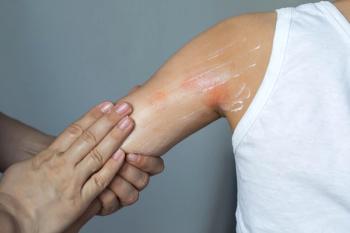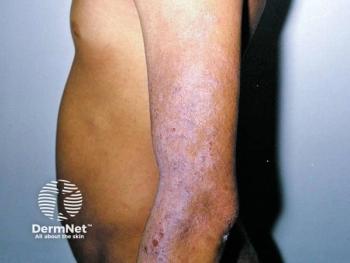
Virtual visits aid acne treatment
Boston - A teledermatology pilot program here is making acne patients' follow-up visits easier and their dermatologists' workflow more efficient, the program's director tells Dermatology Times.
"Patients and healthcare providers alike are embracing it," says Joseph Kvedar, M.D., vice chairman of dermatology at Harvard Medical School and director of Partners Telemedicine, which runs the program out of Massachusetts General and Brigham and Women's hospitals.
As its developers expected, he says, "For certain patients, this is viewed as a plus because of the convenience of not having to travel to the office for a visit that's rather brief and mechanical."
At press time, the voluntary program had recruited about one-third of its 160-patient goal. Those who elect to enroll simply enter answers to a series of detailed questions such as how their medications are working, then snap three digital photos of their faces, which they e-mail to their physician.
Because reviewing such images and making any necessary replies takes about five minutes per patient, Dr. Kvedar says, "It's definitely more efficient" than having nurses funnel patients through a waiting room. Nevertheless, he emphasizes that the program represents an adjunct to - rather than a substitute for - office visits.
That said, Dr. Kvedar estimates conservatively that the system enables him to see twice as many patients per unit of time as he can in person, while offering quality patient care and timely medical feedback.
"The other exciting part about the study is that Blue Cross Blue Shield of Massachusetts then is an active participant," providing financial support and, going forward, helping developers to determine an equitable reimbursement model, he says.
Once all parties agree on the level of compensation (which Dr. Kvedar says probably will fall between the $30 that Blue Cross now pays for an electronic visit and the $65 it pays for typical acne follow-ups), Dr. Kvedar says, "We'll take it to other payers in the area."
Organizers hope to complete the trial by year's end. Already, Dr. Kvedar says it's providing the same quality of care as face-to-face visits. The structured electronic interaction facilitates a level of detail that's "much better than what we might remember to ask patients in a quick office visit," he explains.
For more information:
Newsletter
Like what you’re reading? Subscribe to Dermatology Times for weekly updates on therapies, innovations, and real-world practice tips.












